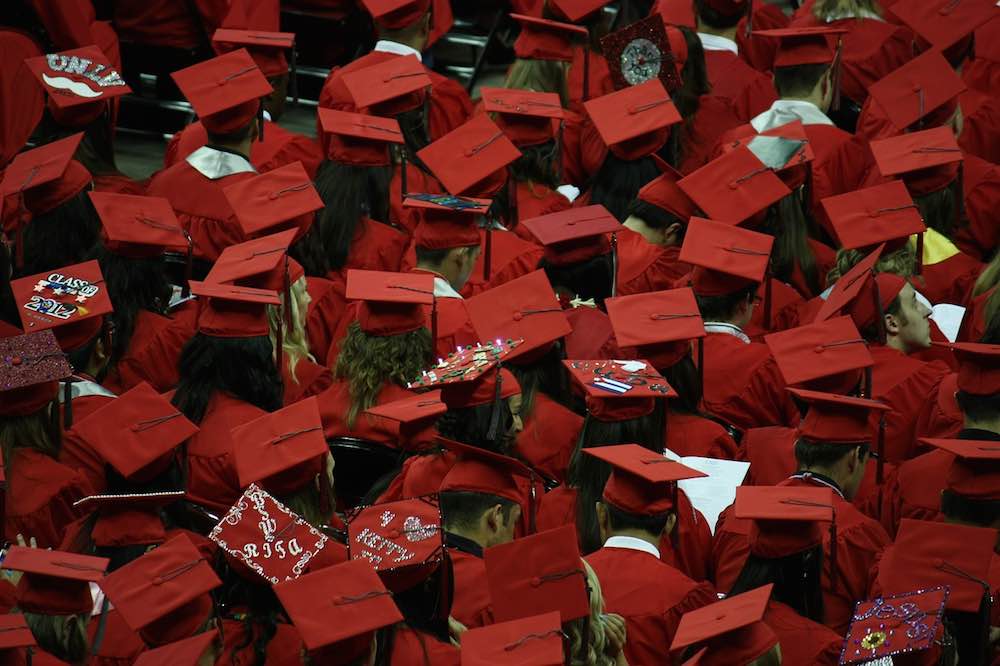Meritocracy. An ideal world where everyone is rewarded based on his or her individual qualities. The intelligent and the hardworking become the rock stars, the lazy and ignorant are doomed to a life of mediocrity. But would a true meritocracy be as idyllic as it sounds?
As was covered in Part I, there are a number of problems with defining and identifying merit. In Part II, we are going to overlook these issues and imagine what a real meritocracy might look like, and why, despite what they might say, the vast majority of people actively undermine meritocracy on a regular basis.
What Would a True Meritocracy Look Like?
Assuming we have some agreed upon way to define and identify merit, what would a true meritocracy look like? For a pure meritocracy (i.e. one in which the success of a given person is solely determined by their own actions and intelligence) to exist, each individual’s merit needs to be determined solely by his or her own individual quality.
The problem with this is, in the real world, parents have a huge influence on a child’s chances of success. This influence comes in an infinite number of forms, but includes intangible things like advice, help with homework, introductions to influential people, and being a positive role model, as well as tangible resources such as money and access to the best schools.
If parents have such a large influence on the success (or failure) of their children, how can a true meritocracy exist? Realistically, to achieve a true meritocracy, the government (or some independent body) needs to equalize parents’ influence on their child.
This equalization can take two forms. The first form is providing resources and assistance to less well off parents to try bring them up to level of parents in the upper classes. This typically includes things like welfare payments, subsidized/free health care and housing assistance, but also includes scholarships and other programs offered to help disadvantaged kids.
The second form of equalization is typically more controversial and involves reducing the ability of upper class parents to provide advantages to their children. These types of measures are far more rare, but they do exist – policies such as inheritances taxes and the removal or restriction of private schools[1] are two examples.
The reason this second type of measure is so rare is because it starts to reveal the underlying tradeoff. The tradeoff being that ensuring everyone gets the same quality upbringing means that, for some children, the quality of their upbringing has to decrease.
But even if we were willing to accept more extreme policies, they can only realistically go so far. No government can legislate to ensure every child is read to at night, and nor can they implement a ban on reading to children to make sure no child gets an advantage. No government can legislate away deadbeat Dads or Moms that get drunk in front of the kids. Which means that if you are going to create a true meritocracy, there is only really one option – take the parents out of the picture completely. This is where things start to get a little scary.
To guarantee every child receives the exact same upbringing and education, the government (or some independent body) would need to remove parents from their children’s lives. This could take various forms. A Logan’s Run style scenario where everyone is ‘terminated’ at age 30 – essentially creating a nation of orphans is one potential option. Another would be taking children at birth and raising them in industrial scale nurseries and boarding schools out of reach of parents, somewhat akin to Aldous Huxley’s Brave New World (without the presence of castes or the extreme social conditioning).
There a numerous ways that one can envisage removing a parents’ influence from their children, but the difficulty is imagining one that does not sound like a good premise for a movie about a dystopian future. In fact, the options are so unappealing that even the most repressive and extreme regimes in history have shied away from this kind of intervention.
If this is what a society would need to do to implement a true meritocracy, are there at least some upsides?
A Fairer System?
One of the key arguments made for meritocracy is that it is a ‘fairer’ system. But is it fairer (whatever that means), or are we simply replacing one lottery with another?
The current system is one in which your future success is dictated by some combination of who your parents and/or role models are (‘nurture’) and your own individual abilities (‘nature’). A true meritocracy, as we have been describing it, is simply a system in which the ‘nurture’ component has been standardized.
Is that actually fairer though? There will still be winners and losers, but now the people born with a dud genetic hand are probably worse off then in our current less meritocratic world. Unlike the current world we live in, there is no chance that a superior work ethic instilled by charmingly humble parents will get someone ahead. There are no inspiring stories of underdogs beating their better-credentialed rivals through pure determination. Rocky Balboa never even gets to fight against Apollo Creed. In a true meritocracy, the favorite always wins – that is the point of system.
A Better System?
By ensuring that the best and brightest are the ones that rise to the most influential positions, are we at least guaranteeing the fastest possible rate of progress for humanity? The answer to that question depends on how you believe progress is made.
Someone who believes that progress is only really made by rare transformative geniuses, like Einstein and Hawking, should be in favor of a more meritorious society. The risk is that a genius will be born to bad parents or in the wrong country, and as a result, that genius is wasted and substantial progress is forgone. To minimize the risk of this happening, a rational person should be willing to sacrifice certain freedoms (through more government intervention) to make sure that fewer geniuses are ‘wasted’.
On the other hand, if a person believes that progress is made by the cumulative effort of many, many intelligent (but not unique people), they should not be so worried about a true meritocracy. In this case, the loss of some geniuses to bad upbringings and poverty is much less consequential as they will be replaced by other equally or slightly less intelligent people. Maximizing the overall level of child welfare should be the priority, which, to most people, would mean allowing parents to raise their own children as far as possible.
Saying versus Doing
Stepping away from the theoretical, there is a lot that can be learned about people’s preferences in regard to meritocracy by simply looking at their actions in our world today. There is an Italian proverb that I enjoy reciting from time to time to make myself sound intelligent:
“Between saying and doing, many a pair of shoe is worn out”
Aside from the aforementioned reason, I bring this up now because people’s actions often reveal their true preferences much more accurately than their words. This is particularly true when it comes to meritocracy. In my experience, there are few people that do not actively attempt to give themselves (or those they care about) some advantage over others, and even fewer that would not take advantage of an opportunity that was presented to them.
A common example is private schools. These schools, by definition, are unmeritorious. Their business model is that parents will pay money (often large amounts of it) to send their children to a certain school exactly because they believe it will provide their child with an advantage over other children that don’t go to that school. If they did not believe it provided their children with an advantage, no rational parent would pay to send their child there.
Inheritances, giving someone a job because you know them, private tutors, moving to a better (i.e. more expensive) school district, helping out the kids with homework or even reading to them at night are just some of the endless ways that everyone, myself included, undermines a true meritocracy.
Summary
Despite the platitudes and mainstream acceptance, a true meritocracy is not what we really want as a society. Any serious thought on the subject quickly reveals a true meritocracy it is all but impossible to implement, and if implemented, the reality would be a dystopian world worthy of a George Orwell novel.
However, once the realization is made that a true meritocracy is impossible and undesirable, the remaining conclusion is that no one is truly arguing for or against meritocracy, everyone is simply arguing for a different shade of grey. The introduction and removal of various policies simply makes that shade slightly darker or lighter.
This is an important conclusion because it changes the perspective of the argument. There is no right vs. left, haves vs. have nots, good vs. evil. There is just people arguing for incremental changes. Each country, with every election, is simply working out what shade of grey they prefer.
[1] Many countries in Europe do not have private school systems, including education pinup nation Finland.

